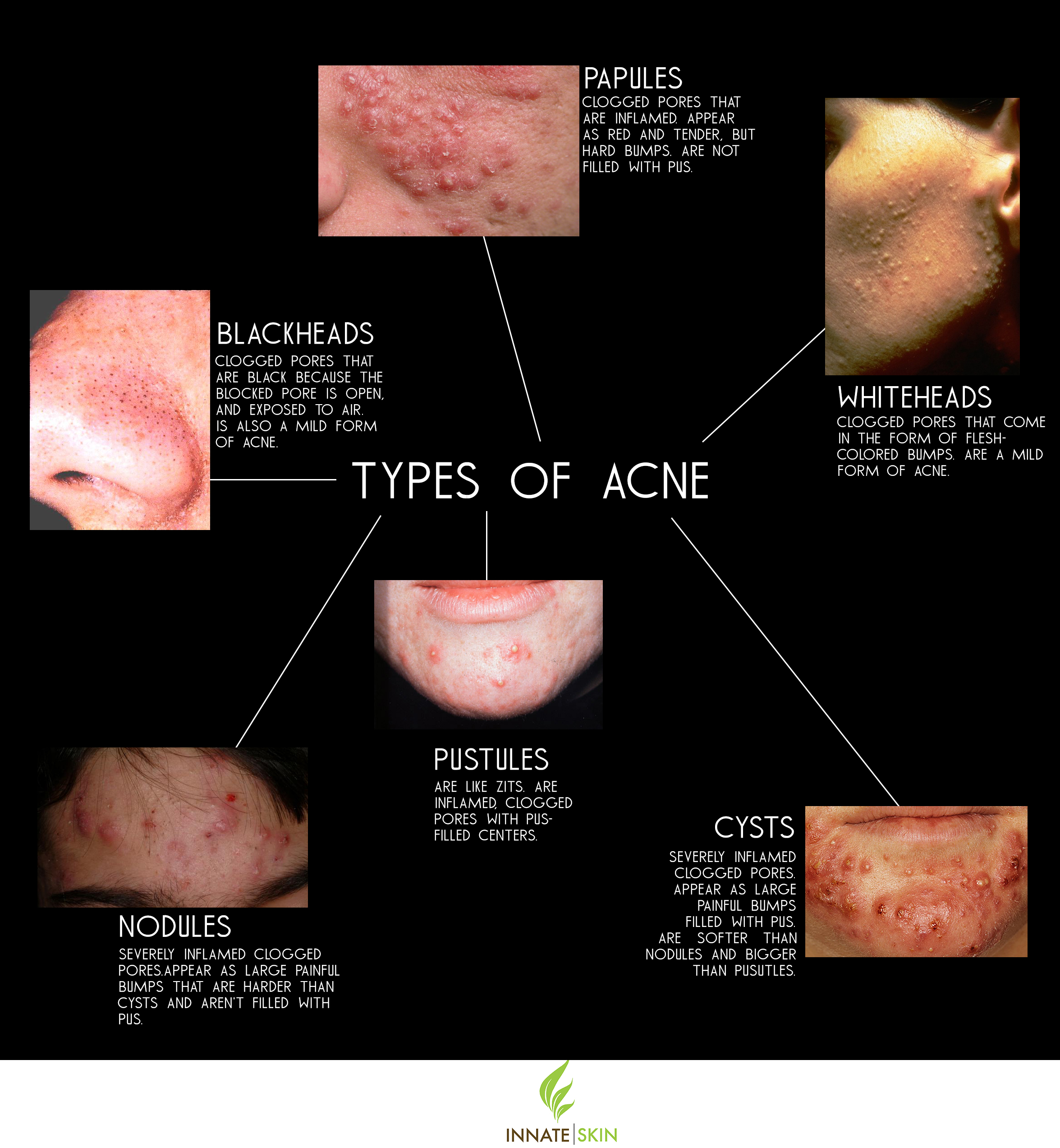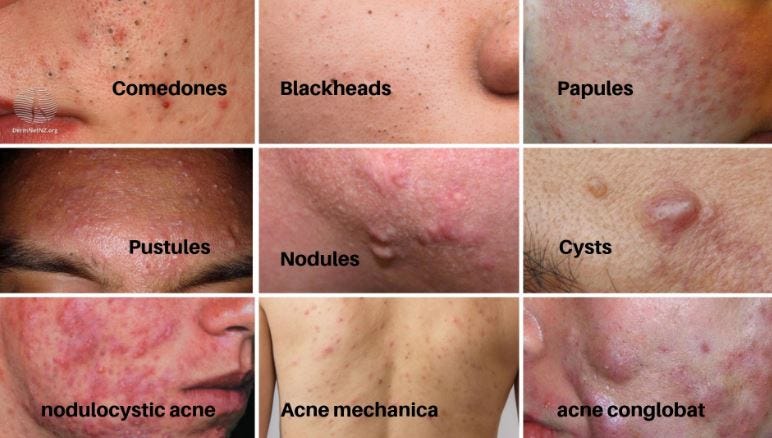Know Your Type Of Acne

While it is bad enough that acne is such a common problem, it is perhaps worse that there are so many different kinds of acne. You are probably familiar with some of the commoner varieties of acne, such as acne rosacea or acne vulgaris, even if you have never suffered from either of them.
But when you are really looking at effective remedies for acne, it helps to know enough about your condition to be able to target your problem specifically. So let us take a look at the different kinds of acne and see what we are actually dealing with here.
Exploring the acne spectrum. Broadly speaking, let us start with adult acne, which can be caused by a diverse range of factors, such as hormonal imbalances, pollutants, elements related to stress and responses to medications of different kinds.
These are just a few of the many causes of adult acne. Research has indicated that there may be a definite link between hormonal disturbances and the eruption of acne in women between the ages of 30 and 60 years.
Next on the list is Acne Cosmetic, which as the name suggests, is related to the kind of cosmetics you may have used which perhaps did not agree with your skin. In this kind of acne, your skin and pores have reacted adversely to various ingredients contained in your cosmetics.
Then there is Acne Congoblata, which is normally caused by hereditary factors. This kind of acne causes severe scarring on the face and back. Worse still, there is not very much that you can do about it.
Acne Detergens, as is evident from the name, is caused by the irritant effect of soaps and cleansers on the skin.
Acne Excoriee is the direct result of acne sufferers picking at the pimples on their faces and bodies. This is one of the worst things that anyone suffering from acne can do.
Then there is Acne Fulminans, a rather serious form of acne, in which the eruption is accompanied by fever and bodyache. This kind of acne mainly affects males and erupts suddenly. Other symptoms of this kind of acne include a high white blood cell count, as well as loss of appetite and deep scarring.
You may have had enough by now, but unfortunately, there's more as this ghastly list goes on and on.
Acne Keloidalis is generally found among people of African stock. Most of the eruption in this kind of acne is concentrated around the neck.
Acne Mallorca is the result of too much exposure to the sun.
Acne mechanica is caused by friction between bare skin and different materials such as clothing, bag straps etc.
Acne Medicametosa occurs as a side effect of some medications. These include oral contraceptives, as well as other drugs that contain potassium iodide, potassium bromide and chlorine.
Acne Neonatorium is also commonly known as baby acne. It is caused by the transfer of hormones from mother to child, which stimulates the secretion of sebum in baby skin.
Last on the list is Acne Pomade, so called because it is brought about by the use of oils found in hair care products. What happens here is that this oil is transferred from the hair to the forehead, where it ultimately irritates the skin and clogs pores, causing acne to develop.
Generally speaking, it is a good idea to avoid touching your face in any case, and particularly if you are suffering from acne.
Now that you know the whole sordid tale, you will be in a better position to judge which kind of acne you have and take appropriate precautions. Before you recoil in horror at the different kinds of acne you are up against, remember that you only need to identify the one that concerns you.
Do not forget that you can look to your doctor or your dermatologist, perhaps both, for guidance on how to tackle your problem. It is not as bad as it looks, so do cheer up!



Comments
Post a Comment